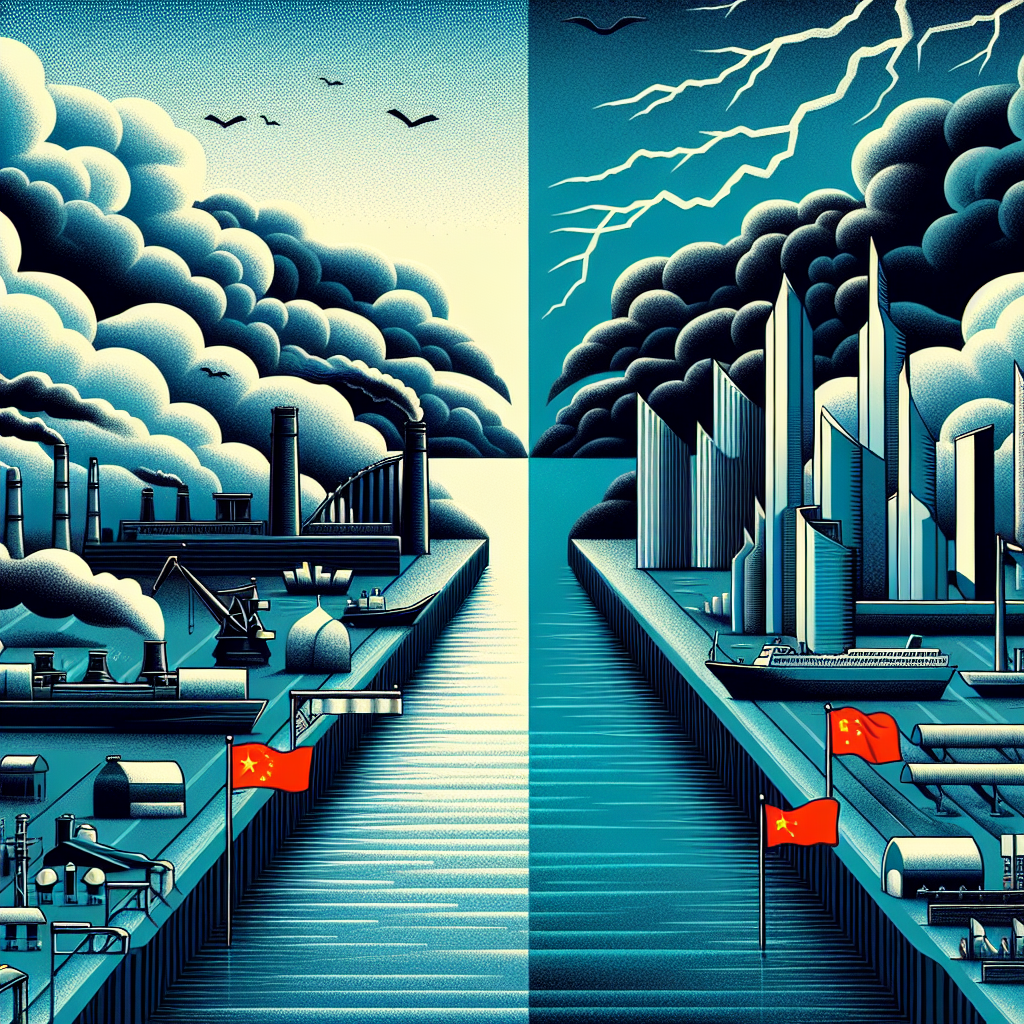The Pivotal Mistake of China's Taiwan Ambition and Its Economic Odyssey
In the labyrinth of global politics and economics, China stands as a colossus, striding across both realms with the confidence of a nation that has, over the past few decades, lifted hundreds of millions of its citizens out of poverty. This monumental achievement is nothing short of a miracle, a testament to the sheer force of policy, ambition, and integration into the global market. Yet, beneath the glittering façade of skyscrapers and high-speed trains, lies a paradox that threatens to unravel the very fabric of China's success story. This article delves deep into the heart of China's tumultuous journey, dissecting the conundrum of its Taiwan ambition and the economic odyssey that has captivated the world.
The Rise of a Dragon
Since Deng Xiaoping's era, China has embarked on a path of reform and opening-up, embracing the global market with an unparalleled zeal. The country's reintegration into the world's maritime order, adherence to the "basic credit card rules" of international trade, has propelled China to the forefront of global economic growth. The dragon has not only awakened but soared, leaving an indelible mark on the landscape of global wealth distribution.
However, China's ambition extends beyond mere economic dominance. The specter of Taiwan looms large over its geopolitical aspirations, a thorny issue that has become the Achilles' heel of its foreign policy. The desire to reunify with Taiwan, by force if necessary, reflects a deeper struggle within China - a struggle between progress and control, openness and isolation, prosperity and power.
The Communist Party's Tightrope Walk
At the heart of China's internal conflict lies the Communist Party's insatiable hunger for unilateral power. The economic reforms that have fueled China's rise were, for a time, a convenient vehicle for the Party to maintain its grip on the nation. Agriculture, industry, and technology flourished, creating a burgeoning middle class and a cohort of powerful, globally connected businesses.
Yet, this very success has sown the seeds of discord. Educated citizens and entrepreneurial giants push against the invisible boundaries set by the Party, yearning for a taste of the political influence that accompanies economic power. The Party, in response, tightens its fist, quashing dissent and stifling autonomy under the guise of national unity and stability.
The Dilemma of Prosperity Versus Control
For Western observers, the logic behind governance is often framed around the welfare of the population - security, living standards, and freedom. In China, however, the equation is recalibrated, prioritizing the perpetuation of the Communist Party's dominion above all else. This fundamental divergence in philosophy has led to a precarious balancing act, where economic liberalization and authoritarian control attempt to coexist.
The recent crackdown on China's most innovative entrepreneurs and the throttling of private enterprise signal a troubling shift. The Communist Party, having lost its moral and economic high ground, now plays its final card with fervor: nationalism. The passionate, albeit misguided, rallying cry for the annexation of Taiwan serves as a unifying force, a distraction from domestic woes and a declaration of intent to the world.
The Path Not Taken
In this grand chess game of international relations, China's fixation on Taiwan represents a strategic blunder of epic proportions. Rather than embracing the status quo, where both China and Taiwan continue to thrive as separate entities engaged in mutually beneficial trade, the Party's obsession with control threatens to plunge not just the strait but the entire region into chaos.
Imagine, instead, if China were to acknowledge Taiwan's autonomy, however begrudgingly, focusing its energies on strengthening economic ties and fostering regional stability. Such a move would not only enhance China's standing on the world stage but also ensure the continued prosperity of its people.
The Sanctions Sword
The global order, based on the principles of sovereignty and mutual respect, leaves little room for the kind of aggressive expansionism China contemplates. Should the unthinkable occur, the international community is poised to act, leveraging the potent tool of sanctions to isolate and weaken China's economic might.
Sanctions, often misunderstood as ineffective, serve not as an immediate corrective but as a long-term strategy to erode the economic foundations of the offending party. The stark contrast between North and South Korea stands as a testament to the cumulative power of economic isolation.
As China teeters on the edge of making a "pivotal error," it stands at a crossroads. Will it heed the lessons of history and the warnings of the present, or will it forge ahead, blinded by hubris and haunted by the specter of a strategic miscalculation?
In a world fraught with uncertainty, one thing remains clear: the decisions made in Beijing will reverberate across the globe, shaping the future of international politics and economics for generations to come. The dragon's flight path is yet undecided, but the winds of change are gathering force, waiting to see if wisdom or folly will guide its wings.
For further reading on China's economic reforms and its global trade relationships, visit the following links:
In exploring the intricate dance of power, prosperity, and identity that defines China's journey, one cannot help but marvel at the complexities of this global giant's path. The world watches, waits, and wonders what the future holds for China, Taiwan, and the delicate balance of international order.
Related News
- The Strategic Playbook of the Chinese Government: Beyond Western Expectations
- Analyzing Xi Jinping's Intentions: The Taiwan Conundrum
- The Utter Madness of a War Over Taiwan: An In-Depth Analysis
- The Unipolar Moment and Its Impact on Global Power Dynamics
- The Ripple Effects of Desperation: A Deep Dive into Japan’s Historical Decision and Economic Downfall
